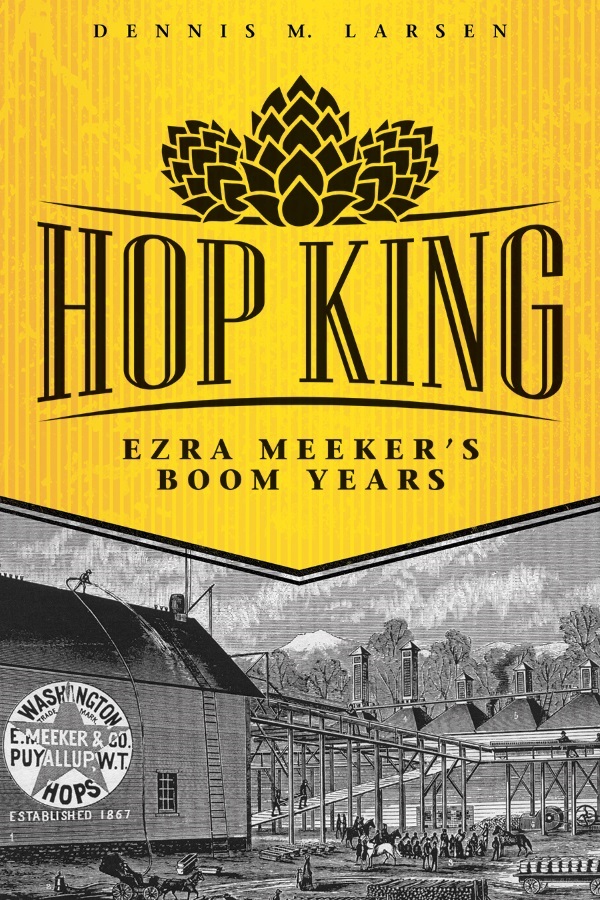Description
Two of Ezra Meeker’s defining traits were his ability to recognize business opportunities and his willingness to take risks. In 1852, the Washington Territory pioneer traveled west over the Oregon Trail, finally settling near Tacoma in the Puyallup Valley.
In the mid-1860s, he planted his first hops, and despite wild price fluctuations, attained modest success. Then he met beer brewer Henry Weinhard and began selling to him directly. Approximately twenty-five acres of hop roots led to $9,000 in sales—$154,000 today. Inspired, other farmers slowly joined in, shipping produce to San Francisco.
Ezra served as a broker and traveled to New York and London to open new markets. Convinced Northwest hops were superior, he hired a respected chemist to analyze the quantity of extract produced from Bavarian and New York hops as well as his own. The results confirmed his claims.
Then in 1882, Meeker quietly bypassed California middlemen, sending Washington hops directly to New York. That same year, Pacific coast growers benefited from widespread crop failure elsewhere. Desperate brewers offered astronomical prices and Puyallup farmers were rich. E. Meeker and Co. became the largest hops exporter in the country, and Ezra the official “hop king.”
Rarely idle, Meeker also managed a large family, became involved in philanthropy and development schemes, promoted Washington and Puget Sound, was active in politics and women’s suffrage, and tried to manufacture sugar from beets. Impulsive and pugnacious, he was an intimidating business opponent who became entangled in numerous lawsuits. Sadly, a combination of bad investments, lack of diversification, the 1893 depression, a financial betrayal, and an aphid plague brought Meeker’s boom years to a close.
In his newest book, Dennis M. Larsen recounts Ezra Meeker’s profitable years as well as the intertwined histories of hops, Puyallup, and Washington Territory. An independent historian and former social studies teacher, he has written for historical journals and is author/co-author of four other books. He speaks frequently on the Oregon Trail, Northwest pioneers, and of course, Ezra Meeker.
Illustrations / map / notes / bibliography / index / 268 pages (2016)











